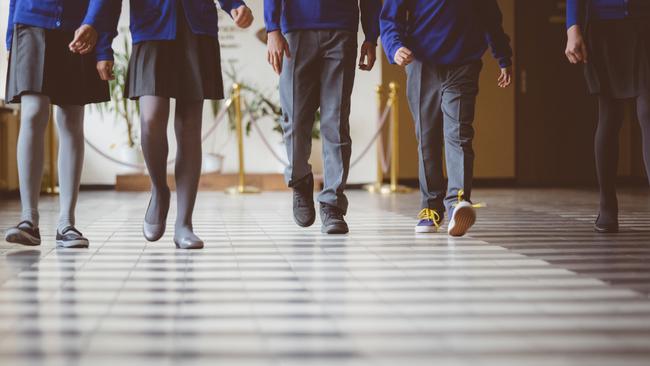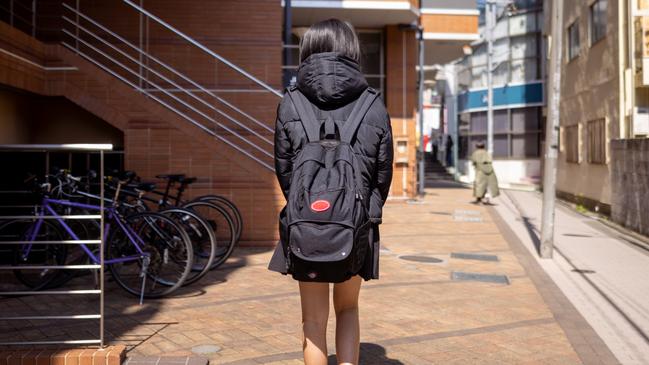Andrew Bolt: Sad consequences of radical gender treatments exposed
Devastating revelations are emerging about clinics that have treated damaged young people who say they’re transgender.

Andrew Bolt
Don't miss out on the headlines from Andrew Bolt. Followed categories will be added to My News.
I’ve been shocked by two new and devastating revelations about clinics which treated damaged young people who say they’re transgender.
Together, they warn that suppressing the puberty of these patients with chemicals, and later cutting off their penis or breasts, could be the most grotesque treatment since lobotomies.
One is a book – Time to Think: The Inside Story of the Collapse of the Tavistock’s Gender Service for Children – by Hannah Barnes, a BBC investigations producer.
The other is an extraordinary essay – I Thought I Was Saving Trans Kids.
Now I’m Blowing the Whistle – by Jamie Reed, who worked as a case manager for the Washington University Transgender Center.
I shouldn’t really be surprised by the horror both women document, one in Britain, the other in the US.
For years, a psychologist here has told me of seeing unhappy children, often loners with autism symptoms or troubled backgrounds, who’ve become celebrities at school by saying they are transgender.
“But when everyone is praising these children for being brave and different, my worry is: how do they dare say, actually, I’ve changed my mind and aren’t transgender?” says the psychologist.
This new book and article both hammer that point.
Reed says America’s paediatric gender clinics saw just a very small number of boys until about 2015.

“Then, across the Western world, … teenage girls, many with no previous history of gender distress, suddenly declared they were transgender and demanded immediate treatment with testosterone.”
Patient numbers in Reed’s own clinic exploded seven-fold. “Sometimes clusters of girls arrived from the same high school.”
But here’s a flashing red light: “The girls who came to us had many comorbidities: depression, anxiety, ADHD, eating disorders, obesity. Many were diagnosed with autism …
“Frequently, our patients declared they had disorders that no one believed they had. We had patients who said they had Tourette syndrome (but they didn’t); that they had tic disorders (but they didn’t); that they had multiple personalities (but they didn’t).”
Yet while the doctors at Reed’s clinic “privately recognised these false self-diagnoses as a manifestation of social contagion”, they didn’t doubt the self-diagnoses of being of the opposite gender.
The examples Reed gives are so sad. Her clinic treated one 17-year-old who had been sexually abusing dogs. His mother was a drug addict and his father in jail, but the doctors took the word of this traumatised boy that he was female and put him on “feminising hormones”.
Hannah Barnes’ book tells much the same story about Britain’s Tavistock gender identity development service, now ordered shut down.
At first, most patients were boys, a third from families with mental health problems.
Nearly half had a parent who’d died or left home.

Barnes says the clinic then saw many more mentally ill children, who didn’t just identify with another gender but another race – “usually east Asian, Japanese, Korean”.
More than a third had autism symptoms.
More than 80 per cent were also same-sex attracted or bi. Some clinicians wondered whether they were treating gays who thought it less shameful to like men if they identified as women.
Yet Tavistock still put many children on a one-way street to transition.
We’re told Australia’s five paediatric gender clinics are more careful.
The biggest, the Monash Health Gender Clinic, says it’s learned lessons after being shut down for three months in 2009, when three former patients complained it should have stopped them trying to change gender.
One, a man sexually abused by his mother as a child and raped by two men at 16, said he’d felt between his legs after being castrated and “ I just started bawling my eyes out … I remember saying to myself, you f —king idiot, Andrew, how could you be so bloody stupid?”
Yet the Monash Health website is still very “gender affirming”, telling children it “will honour, respect and support you in your journey”. Journey to where?
Melbourne’s Royal Children Hospital’s gender unit meanwhile claims “about 1.2 per cent of Australian schoolchildren (about 45,000 children) are thought to identify as transgender” — a suspiciously high number actually from a New Zealand survey which merely asked students to describe themselves.
That dodgy figure suggests an attempt to normalise the radical treatment the gender unit offers, including surgery, “which is not commonly undertaken before adulthood”.
“Not commonly” can also mean “sometimes”.
Of course, some people transition and are happy. They include a friend of mine.
But how many others got on a conveyor belt no one dared stop?
More Coverage
Originally published as Andrew Bolt: Sad consequences of radical gender treatments exposed





